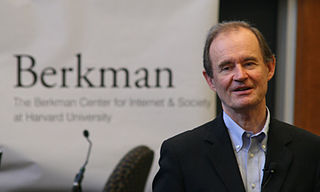I like living here. “Here” is a low-cost, no maintenance condo-type neighborhood for us folks who are 55 or older or have a disability. A good friend of mine, a bit older than me, told me that since I live here now, I need to start acting my age.
Well pass the Ensure and bingo cards Gladys …I’ll get right on that.
The same good friend also described me once as the oldest juvenile delinquent he has ever met.
 But there’s really no getting away from the fact that I’ve reached the stage of life when grandchildren are finally accepted and I no longer wince when one of my grand babies address me as “grandpa.” Yeah, it took me almost a decade to be comfortable with the fact that I am indeed a grandpa.
But there’s really no getting away from the fact that I’ve reached the stage of life when grandchildren are finally accepted and I no longer wince when one of my grand babies address me as “grandpa.” Yeah, it took me almost a decade to be comfortable with the fact that I am indeed a grandpa.
A medley of aches, pains and cramps often remind me that I can’t do stuff as fast and for as long as I used to. These days, my life consists of blazing my way through my work day then hobbling to my comfy sofa, moaning my regret for all that day’s blazing.
This is a nice place to which to come home. One of the great things about living here is how close the residents are…and not in just proximity. We lived in a fairly nice home prior to moving here and in the three years we stayed there I couldn’t tell you the last names of the people living next door or across the street from us. In less than a week here, almost every neighbor had stopped by to say “hi” or to bring various house warming baked goods.
This past Thanksgiving, Diane and I went to the pot luck community gathering at the community center. To be honest, I really didn’t want to go. On the Wednesday before Thanksgiving I had promised a computer to the kids of a single mom, but while installing it, gremlins found their way into the machine. The computer that worked perfectly on the workbench suddenly decided that a kernel panic was in order. I needed Thanksgiving evening to myself so I could get another system ready, but a long, chilly look from Diane was enough to forestall that mission…for a couple of hours anyway.
Ken Starks is the founder of the Helios Project and Reglue, which for 20 years provided refurbished older computers running Linux to disadvantaged school kids, as well as providing digital help for senior citizens, in the Austin, Texas area. He was a columnist for FOSS Force from 2013-2016, and remains part of our family. Follow him on Twitter: @Reglue




 But there’s really no getting away from the fact that I’ve reached the stage of life when grandchildren are finally accepted and I no longer wince when one of my grand babies address me as “grandpa.” Yeah, it took me almost a decade to be comfortable with the fact that I am indeed a grandpa.
But there’s really no getting away from the fact that I’ve reached the stage of life when grandchildren are finally accepted and I no longer wince when one of my grand babies address me as “grandpa.” Yeah, it took me almost a decade to be comfortable with the fact that I am indeed a grandpa.



 Until Fedora 21, the Fedora Project used to have a process for release names in which knock-down drag-out brawls would break out, rhetorically speaking, in the debate and community-wide voting for the name. Arguably, Fedora 17 “Beefy Miracle” wobbled the process from the rails, and while the rest of the names were noble — my favorite was Fedora 19 “Schrodinger’s Cat” — the formula was fairly simple: Names had to meet a “is-a” test. For example, “Schnozz is a ____, and so is Keister.” Taking the example of naming Fedora 14 “Laughlin,” the Fedora Project took the name of Fedora 13 “Goddard” and, though the miracle of the “is-a” test, had a list of candidates, of which Laughlin won. So the formula is as follows: “Robert H. Goddard was a professor of physics, and so was Robert Laughlin.” To see this in action, you can look at the
Until Fedora 21, the Fedora Project used to have a process for release names in which knock-down drag-out brawls would break out, rhetorically speaking, in the debate and community-wide voting for the name. Arguably, Fedora 17 “Beefy Miracle” wobbled the process from the rails, and while the rest of the names were noble — my favorite was Fedora 19 “Schrodinger’s Cat” — the formula was fairly simple: Names had to meet a “is-a” test. For example, “Schnozz is a ____, and so is Keister.” Taking the example of naming Fedora 14 “Laughlin,” the Fedora Project took the name of Fedora 13 “Goddard” and, though the miracle of the “is-a” test, had a list of candidates, of which Laughlin won. So the formula is as follows: “Robert H. Goddard was a professor of physics, and so was Robert Laughlin.” To see this in action, you can look at the 
 Reglue and our project before it,The HeliOS Project; has been a long-time user of Mint…and not for any other reason than it fits our needs. As my friend Eric Johnson says:
Reglue and our project before it,The HeliOS Project; has been a long-time user of Mint…and not for any other reason than it fits our needs. As my friend Eric Johnson says:
 In comes a castoff ThinkPad T500 from a friend in Seattle and I’m now in the 64-bit club.
In comes a castoff ThinkPad T500 from a friend in Seattle and I’m now in the 64-bit club.

 Let me be clear, for those GNOMEistas who might just have their proverbial knickers in a bunch: GNOME has been a remarkable FOSS citizen providing a better-than-adequate desktop environment for many FOSS users, perhaps even a majority of FOSS users. I just don’t happen to be one of them. Further, I will say this for GNOME: Unity should be more like GNOME. Compliment? You decide.
Let me be clear, for those GNOMEistas who might just have their proverbial knickers in a bunch: GNOME has been a remarkable FOSS citizen providing a better-than-adequate desktop environment for many FOSS users, perhaps even a majority of FOSS users. I just don’t happen to be one of them. Further, I will say this for GNOME: Unity should be more like GNOME. Compliment? You decide.